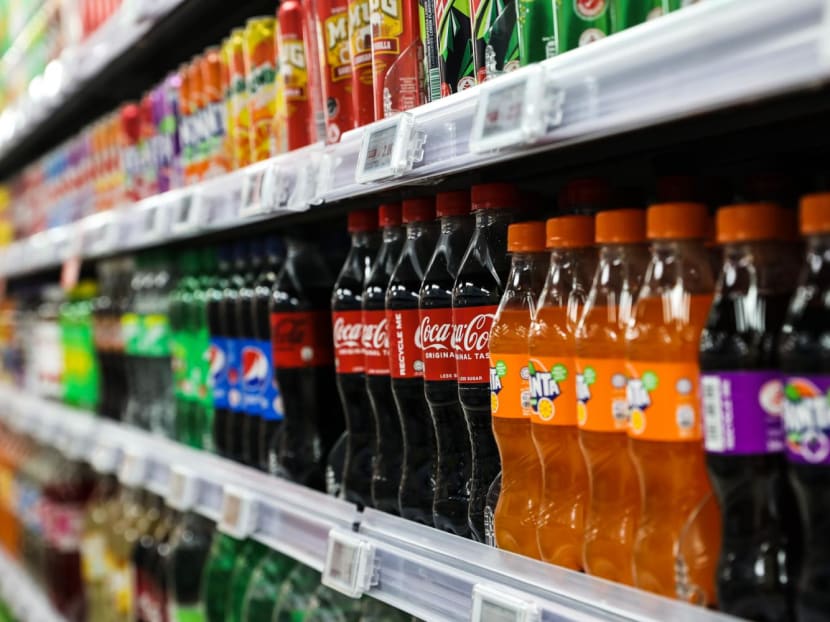Strong incentive for beverage container return scheme to be run efficiently, cost-effectively: Dr Amy Khor
SINGAPORE — An initiative to encourage people to recycle their used drink containers for a refundable deposit will be run by the beverage production industry, which will then have a strong incentive to operate efficiently and cost-effectively, said Senior Minister of State for Sustainability and the Environment Amy Khor on Tuesday (Oct 4).
SINGAPORE — An initiative to encourage people to recycle their used drink containers for a refundable deposit will be run by the beverage production industry, which will then have a strong incentive to operate efficiently and cost-effectively, said Senior Minister of State for Sustainability and the Environment Amy Khor on Tuesday (Oct 4).
Dr Khor was replying to parliamentary questions on the beverage container return scheme, which is in its consultation phase after the National Environment Agency (NEA) launched a survey to gather public feedback on Sept 20.
Under the scheme, consumers of pre-packaged beverages will pay a refundable deposit — currently estimated to be around 10 to 20 cents — in addition to the cost of the drink.
Consumers will get this deposit back if they return their used containers to return points. These locations have yet to be confirmed.
NEA previously said the scheme would cover plastic bottles and metal cans from 150ml to 3L. This will cover more than 1 billion beverage containers in Singapore each year.
MPs Ang Wei Neng (PAP-West Coast), Zhulkarnain Abdul Rahim (PAP-Chua Chu Kang) and Liang Eng Hwa (PAP-Bukit Panjang) had asked about the costs and scale of the scheme.
In reply, Dr Khor said beverage producers, such as manufacturers and importers, will be responsible for the collection and recycling of the products they put on the market, as well as funding the scheme.
In similar schemes overseas, producers typically appoint an operator to carry out their responsibilities under the scheme. An industry-led, not-for-profit scheme operator is preferred, she said.
“As the scheme is owned and run by the industry, it will have a strong incentive to operate the scheme efficiently and cost-effectively, to keep scheme costs low for all parties," said Dr Khor.
"In addition, the revenue from the sale of clean, high quality and high value recyclables, and any unclaimed deposits, will be utilised by the scheme operator to reduce the scheme costs."
On whether costs might be passed on to consumers in the form of increased beverage prices, Dr Khor said prices would likely be moderated by competition within the industry — which is the case in other countries with a similar scheme.
To ensure the scheme operator is efficient, effective and operates fairly across multiple producers, the Government will exercise regulatory oversight over the scheme operator.
The scheme operator will need to be licensed by the NEA and will need to meet conditions set by the agency, such as a collection target.
While NEA previously said the Government was considering mandated return points at large supermarkets with a total area of more than 200 sq m, Dr Khor suggested that containers could be returned at food and beverage premises.
At these premises, operators and stallholders will have the flexibility to decide whether to collect the deposit and pass the beverage containers to their patrons, she said.
“There are a wide range of such premises, from casual settings to more formal settings, and each would have its own preference. For example, stallholders could serve the customer the beverage with its container and charge the deposit, in which case the customers can take away the empty beverage containers and return them at designated return points to claim the refund on their deposit,” Dr Khor explained.
Alternatively, the stallholder could pour the beverage into a cup before serving. In this case, stallholders would not need to charge the deposit as the customer does not receive the beverage container.
The stallholder will be able to collect used beverage containers and claim the refund of deposits on these containers.
“We expect the former to apply in more casual settings such as coffeeshops and hawker centres as the shop owners would typically have their customers pay the deposit and take the beverage container,” said Dr Khor.
F&B operators may also choose to set up return points at their premises.
In overseas schemes, the scheme operator pays handling fees to return point operators to reimburse costs incurred.
The locations of these return points can be in suitable public spaces such as community clubs and sports facilities, in addition to hawker centres.
Return point operators may choose manual over-the-counter return points or opt for automated Reverse Vending Machines.
In a supplementary question, Mr Ang asked whether the deposit or refund would attract any Goods and Services Tax (GST).
Dr Khor said: “Based on the intended design scheme, GST will not be chargeable on the deposit.”
The ongoing consultation by NEA will be open until Oct 14, 2022. CNA
For more reports like this, visit cna.asia.










